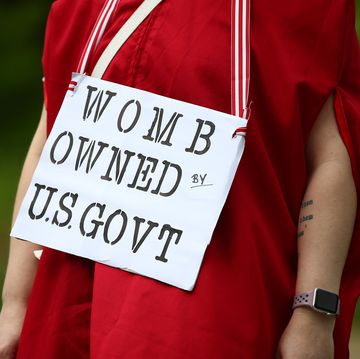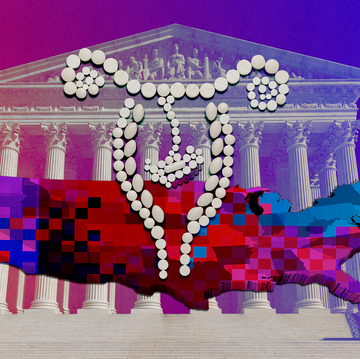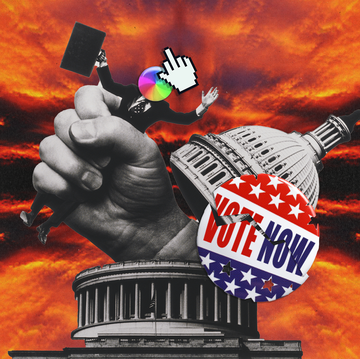When you introduce yourself as a librarian at a dinner party — as I have been doing for my whole adult life — you usually receive one of two responses: either the dreaded “But wait … aren’t libraries, like … dying? Because of Google?” or the well-intentioned, but gently incorrect “You must love books, huh?” It’s not that librarians don’t typically love books — most of us do! But our (not even remotely dead) profession’s true backbone isn’t mere bookishness — it’s a near-pathological enthusiasm for helping people. And, contrary to the frequent reports of our demise at the hands of Google, Americans need the help libraries and librarians supply more than ever now. When previously, librarians were needed to answer questions as simple as “Did Jules Verne write Alice in Wonderland?”, the problems we’re needed to tackle now are much more complex, like what can we do to bridge “the word gap” between poor toddlers and their wealthy peers, or how can we bring broadband service to rural communities that otherwise lack access?
All of which makes President Donald Trump’s decision to ax federal funding for libraries especially painful — we are solving huge, pressing problems, Mr. President! And we’re typically doing it on a shoestring budget. To wit: The Institute of Museums and Library Services (IMLS), one of the many agencies Trump wants to defund and the only source of dedicated federal money for libraries, received $230 million in 2016, roughly 0.00006 percent of the national budget for 2016. But even with that paltry investment, libraries bring enormous dividends — in 2016, 66 percent of Americans over the age of 16 thought that closing their local libraries would badly hurt their communities and, according to return on investments studies performed in Colorado and Texas, for every $1 a library received, taxpayers felt they got about $5 of value.
A quick stroll through IMLS’s database of awarded grants — where 93 percent of the admirably efficient agency’s budget went in 2016 — does a great job of demonstrating why libraries are so beloved. They work to serve everyone, from military families to refugee and immigrant youth. They can do something huge, like developing a new curriculum model for early literacy skills, or something “small,” like teaching kids in a housing project how to make a comic book. They provide everything from first jobs for teenagers (like me — I got my start as a Boston Public Library page at 16) to comprehensive job training and digital skill development for adults hoping to return to the workforce. And they teach everything, from how parents can best foster their young children’s intelligence to how citizens can best effect change within their local communities. They help young people get a start in science, technology, engineering, and math by teaching them high-tech skills like coding and teaching them to grow their own food.
Take a look at this map — built by a librarian, naturally — and you will see how the Institute of Museums and Library Services’ grants have benefitted communities all over the country, red state and blue alike. And these projects — they’re extra. This is what libraries provide do on top of their everyday offerings of advanced research support, basic computer classes, community outreach, school curriculum support, daily early literacy activities, free cultural and educational programs for all ages, equipment to help close the digital divide, and, of course, free books — just about as many as you can carry. The funds libraries receive from the IMLS are a small part of their total operating budget but an essential component — grants like these are what allow libraries to answer all the big questions that Google has left behind, something a former Republican first lady understood very well. Take them away and you take away our best tools for assuring that people in our poorest communities receive the educational and technological support they need to make it in our global economy.
I wish I could say that Trump is attacking libraries because he knows that the information literacy we exist to create is exactly the skill our electorate needs to shut down his lying, cheating, hate-mongering administration. I wish I had confidence that he thought that hard, or strategically, about any of the terrible policies he’s spent the first 50 days of his presidency advancing. But I don’t. I think that instead, like many of the out-of-touch, wealthy Americans who voted for him, to whom the $17 to buy a picture book is an afterthought, who are likely among the 75 percent of Americans with in-home broadband internet, he thinks libraries are a luxury. And he thinks refusing the 0.00006 percent of support the federal government currently grants those libraries makes him look tough and fiscally conservative. But, in reality, they make him look callous and short-sighted. Americans need libraries, and libraries need the IMLS.
Follow Margaret on Twitter.












